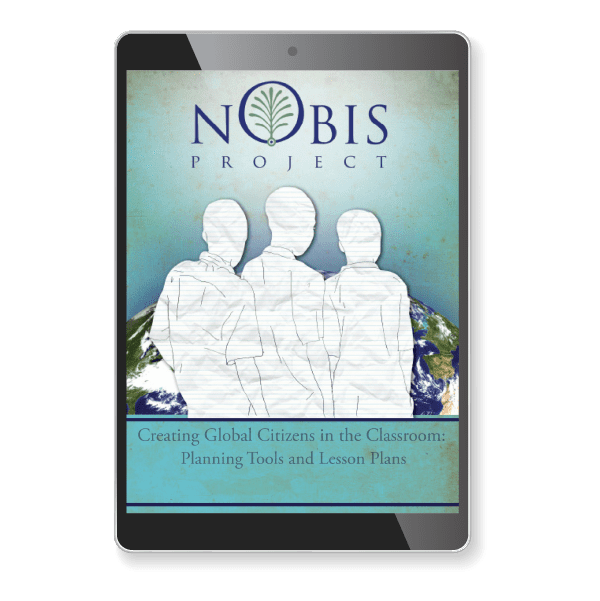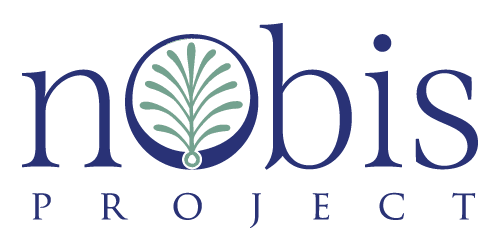Hosting a Community Forum
Lesson Plan
Grade Level: 5-12
Topics:

A community forum provides a moderated place for members of a community to engage in critical conversations and address community issues. A community forum is used to both educate and organize community members on critical issues. It offers the structure and space necessary for school communities to safely explore relevant topics and issues together in either a physical or virtual meeting place. Students can participate in a variety of ways in a community form–from serving as panelists or asking questions to planning and moderating the event. When students are given the opportunity and responsibility of planning and moderating the community forum, they develop leadership skills and have a stake in the issue. Through the process, the student voice is amplified on important community issues.
Timeframe
3-5 sessions
Overview
This document is a guide that can be used to support students in planning and facilitating a community forum. Students will identify a critical community topic or issue and conduct research for the forum. Students will work collaboratively to outline objectives, identify an effective format for the forum, and ensure that the meeting is inclusive and representative of a plurality of community members.
Essential Questions:
-
- What critical conversations are needed in our community ?
- What critical issues need to be addressed in our community?
- How can we take a role in organizing and leading a community meeting?
Lesson Objectives (Students will):
- Organize a community meeting to examine a community issue.
- Identify stakeholders and solicit personal perspectives on a community issue.
- Develop facilitation and reflection skills.
- Promote deeper understanding within the community.
Materials:
-
Interview Best Practices
-
Interview Question Overview
Procedures
DISCUSSION / HOOK
- Introduce the project to students by having them brainstorm what they know about town hall meetings.
- With students, brainstorm ideas about the role of a town hall meeting for a community.
- Individually or in small groups, have students analyze articles and video clips from town hall meetings to garner best practices. As students read or watch, they should consider:
- What is the purpose?
- Who is included in the forum?
- What structure is utilized?
PROJECT OVERVIEW
Developing and Purpose and Scope
Facilitator will begin by guiding students in collaboratively developing a purpose and scope for the project:
-
- Facilitators may select in advance a community issue or objective that will be the focus of the forum. Facilitator can present the story with a guided reading, historical document, or even one person’s perspective to generate questions and interest in the topic. If applicable, the facilitator can ask students to journal or share about their own experience with or questions related to the topic.
- Facilitators can also guide students through the process of identifying the community issue. Facilitator guides students in a brainstorming process to determine an issue or topic that is important for the community to discuss in a forum. Facilitator can begin by posing a question to students such as: What is a barrier to authentic community? What issues or concerns impact our community? What tensions or challenges need to be addressed for a healthier community? What national or global current events impact our own community? Or simply, what are we not talking about as a community? Students can conduct informal interviews to ask community members what issues or topics should be discussed in a community forum. The facilitator can guide students in determining the most appropriate focus for the forum by using a survey or rubric.
- Essential Question: With input from students, develop an essential question and building block questions to explore during the project.
- Planning Logistics: With student input, generate a list of necessary tasks to complete. Prioritize based on importance and time needed to complete.
- Practice and reflect: Students can practice by holding a ‘town hall circle’ in which they take turns moderating the conversation or pose some of the questions that will be used in the forum. After partaking in the circle, students should reflect and incorporate feedback.
PROCEDURE
Establish a planning committee
Begin by establishing a planning committee. Present the idea and identify students who have an interest in planning and hosting the forum. If you are facilitating this project with a class, consider having each student serve on different committees such as communications, logistics, education, and outreach.
Community Forum Planning
The planning committee should begin by planning the scope and objectives of the forum. This will include determining the topic or issue to be discussed by the community as well as the format for the event. Students will develop essential questions that will connect to the topic and identify voices who should be represented as a part of the community.
Establishing topic and objectives
- Identify the critical conversation topic or issue: Determine the topic or issue to discuss at the forum. The facilitator may have a community topic in mind before establishing the planning committee or can allow the committee to determine the topic. In the latter case, students can share in a brainstorming process or conduct informal interviews or surveys to gather ideas.
- Conduct research: The planning committee should conduct background research on the community and/or issue that will be presented. Facilitators can provide resources for students to use or students can conduct research using reliable sources.
- Identify objectives: The planning committee should outline and document the objectives of the community forum. The objectives may change as the project develops, but this will help guide the work.
- Set measurable goals: How will the planning committee know that the objectives have been met? What will actions look like after the forum?
Determining the Format
- Determine the Format: The planning committee will determine the format which will best serve the needs of participants and meet the goals of the community forum. Format could take the form of a panel discussion, interview with an expert, or a round-table discussion. Encourage students to consider balancing lived experience expertise with academic expertise.
- Organize the panel: If the community forum includes a panel discussion, the planning committee should identify critical voices to include on the panel. Panelists should be approached well in advance of the event to ensure their participation.
- Moderating: Brainstorm and share model practices for moderating a forum. Determine who will moderate the event.
- Prepare questions: Based on their research and established objectives, the planning committee should draft a list of open-ended questions that will help community members engage in the critical conversation topic and would generate different perspectives and experiences. Similarly, questions can be prepared for breakout discussions.
- Breakout sessions: Decide whether it will be useful to include breakout sessions to provide a secondary place for participants to share their voice and opinions.
- Wrap-up: Determine how the forum will conclude and what follow-up instructions will be shared with participants
Inviting participation
If the forum is for a school community: The planning committee should inform members of the school community about the event to generate interest and inform participants about any necessary prep-work prior to the event.
If the forum will be for a wider community:
- The planning committee will identify potential participants and groups within the community who can give voice to the issue or topic.
- Utilize public forums, listservs, or social media platforms to connect with potential participants. Consider partnering with existing community networks such as a local library, civic organization, or historical society to solicit participation in the forum
- Planning committee should emphasize and prioritize inclusivity throughout all stages of the planning in order to garner broad perspective.
Community Forum Logistics
The planning committee should also care for the logistics of the forum. Logistics will include practical details that occur during the forum, as well as before and after the event including set-up (of a virtual or physical space), breakout sessions (if applicable), acquiring and distributing materials, and order of program, and follow-up from the meeting.
Logistics prior to the Forum
- Prepare moderator, panelists or experts with the format, objectives, and stakeholder groups who will be in attendance at the community forum. Provide necessary materials in anticipation of the event.
- Determine the physical or virtual set-up of the community forum space. Take into consideration how the space will be most inclusive to all participants.
- Determine how participants will identify themselves based on a physical or virtual format.
- Establish the order of events and time allotted for each portion of the meeting.
- If breakout sessions are included, determine spaces and prepare moderators with guiding questions. Determine how people will be assigned to breakout groups.
- Be sure all participants have relevant details including time and location and/ or virtual join links.
Logistics before and during the Forum
Set up
- Designated team members will operate the sound and lighting in an in-person event or spotlight/muting functions of a virtual forum.
- Set-up the physical or virtual space.
- Display or set-up any relevant materials and resources for participants.
Arrival
- Designated team members will greet participants or monitor access to a virtual forum.
- Participants should be informed of any arrival activities or steps to take in order to prepare for the forum.
During the event
- The host or a member of the planning committee should:
- Welcome participants to the forum and introduce panel members or guest experts.
- Introduce the topic and share relevant details such as the rationale for holding the meeting, the community issue to be examined, and different stakeholders and perspectives represented.
- Share relevant logistics about the order of events and use of breakout sessions (if applicable)
- Explain the role that community members will take during the forum.
- The moderator should establish guidelines and community norms for the forum and explain the procedures for the forum.
- Depending on the format selected, the moderator will engage with panelists, experts, or facilitate discussion among all community members present.
- If breakout sessions are included: participants should be guided to breakout rooms facilitated by designated hosts.
- Moderator or designated planning committee member will conclude the meeting and provide any next-steps for participants.
Logistics Post- Forum
- Conduct follow-up with forum participants after the event. This may include sharing relevant resources and continuing opportunities or collecting feedback from participants through a survey or form.
- Share appreciations with panel members or guest experts.
- Conduct a debrief or develop an action plan with the planning committee based on the outcomes of the community forum.
CLOSURE
- Reiterate lesson objectives through written and oral reflection. (e.g. What was learned and discussed?)
- Student assessed with rubric and peer- and self-evaluation of completed assignment.
External Links / Resources
Guide from Facing History and Ourselves
Guide from Upper Hudson Peace Action
Modifications
Differentiation through collaboration or individual work. Students will take on different roles in the planning and facilitation process.
Lesson plan developed by Nobis Project. All rights reserved.
